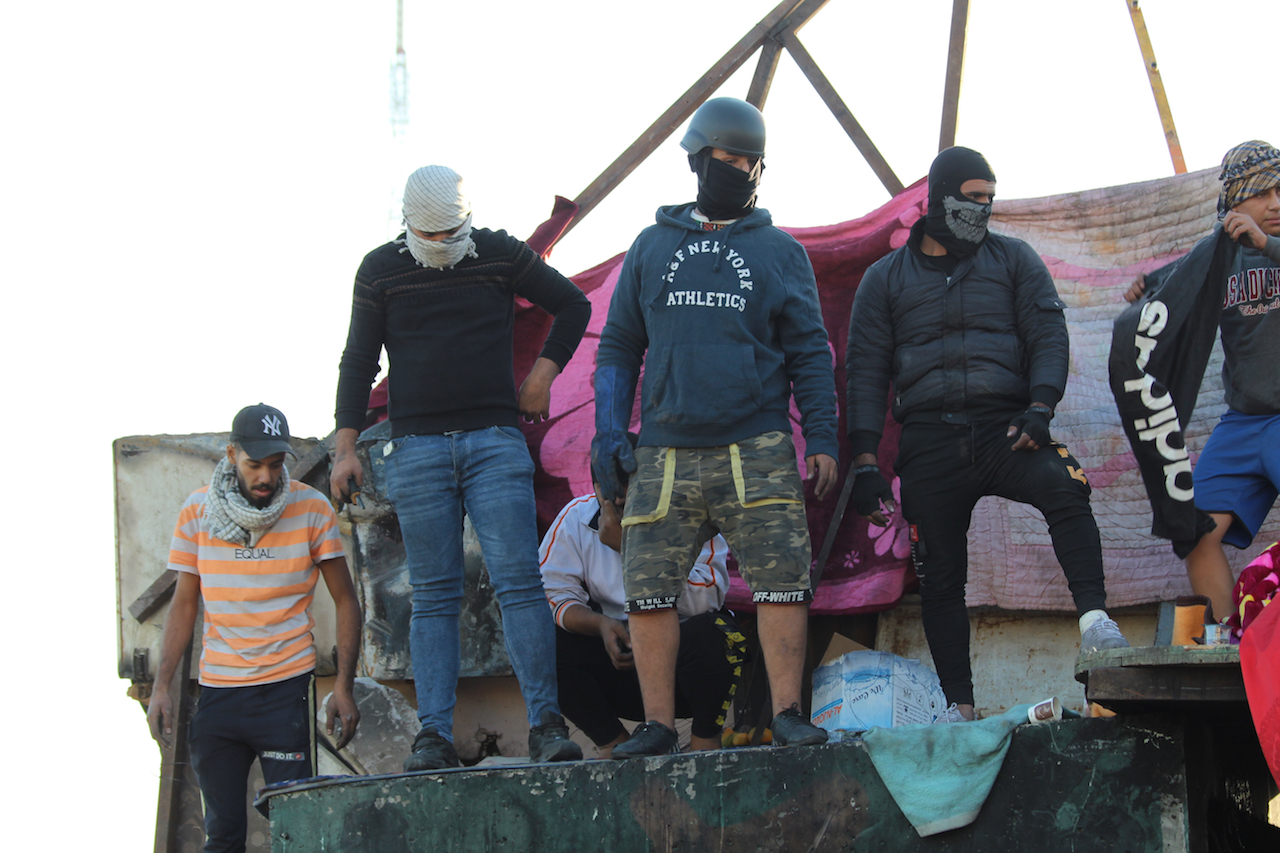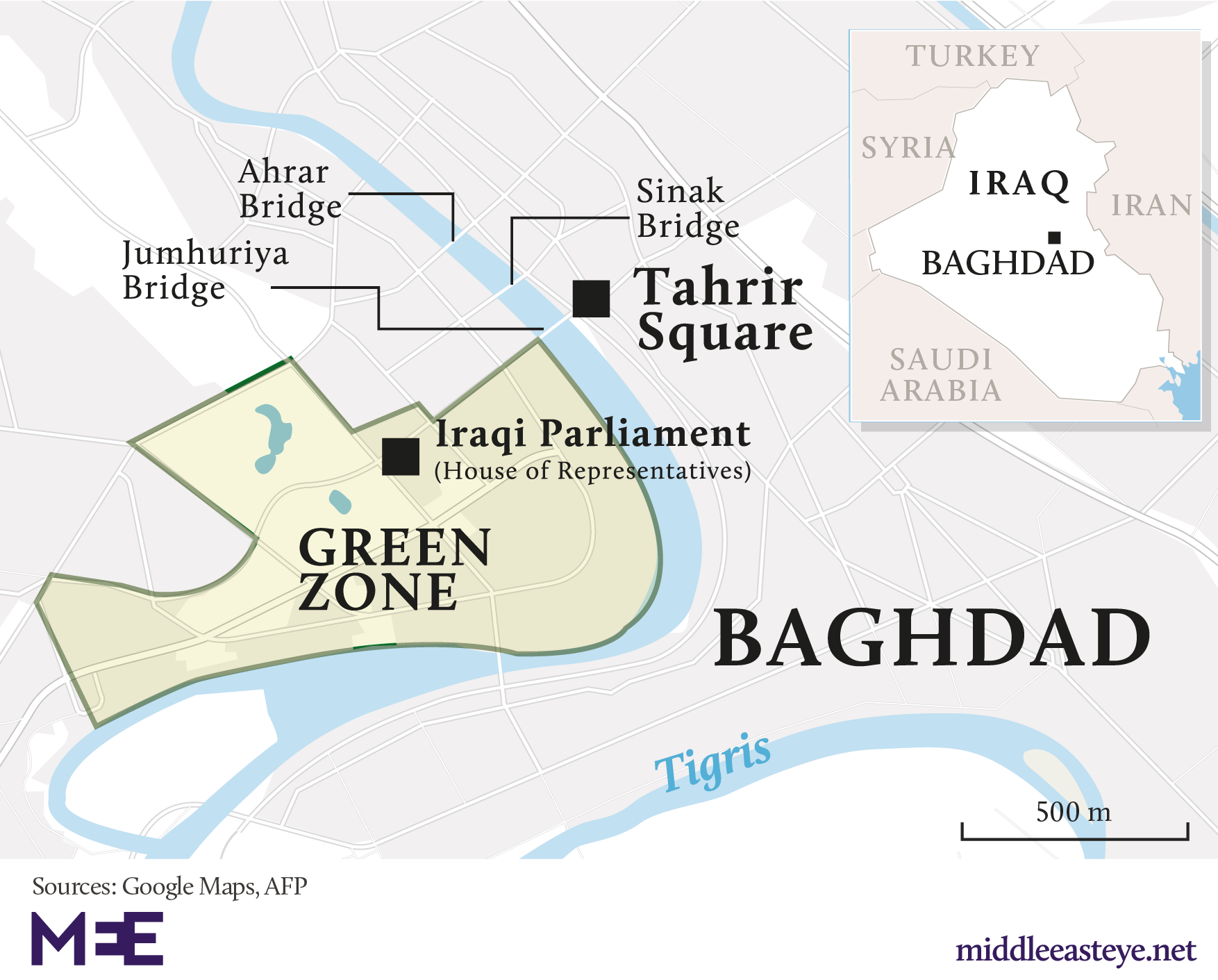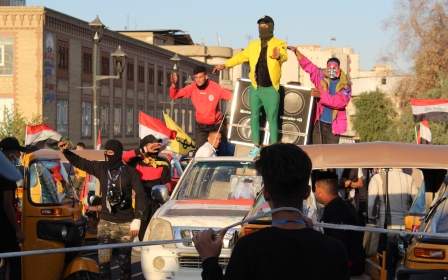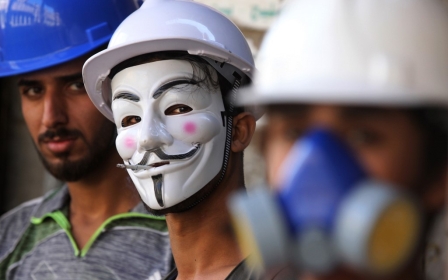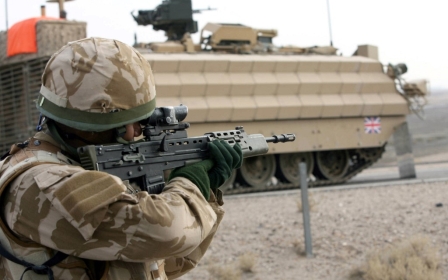Iraqi security forces deny coup attempt as protest death toll continues to rise
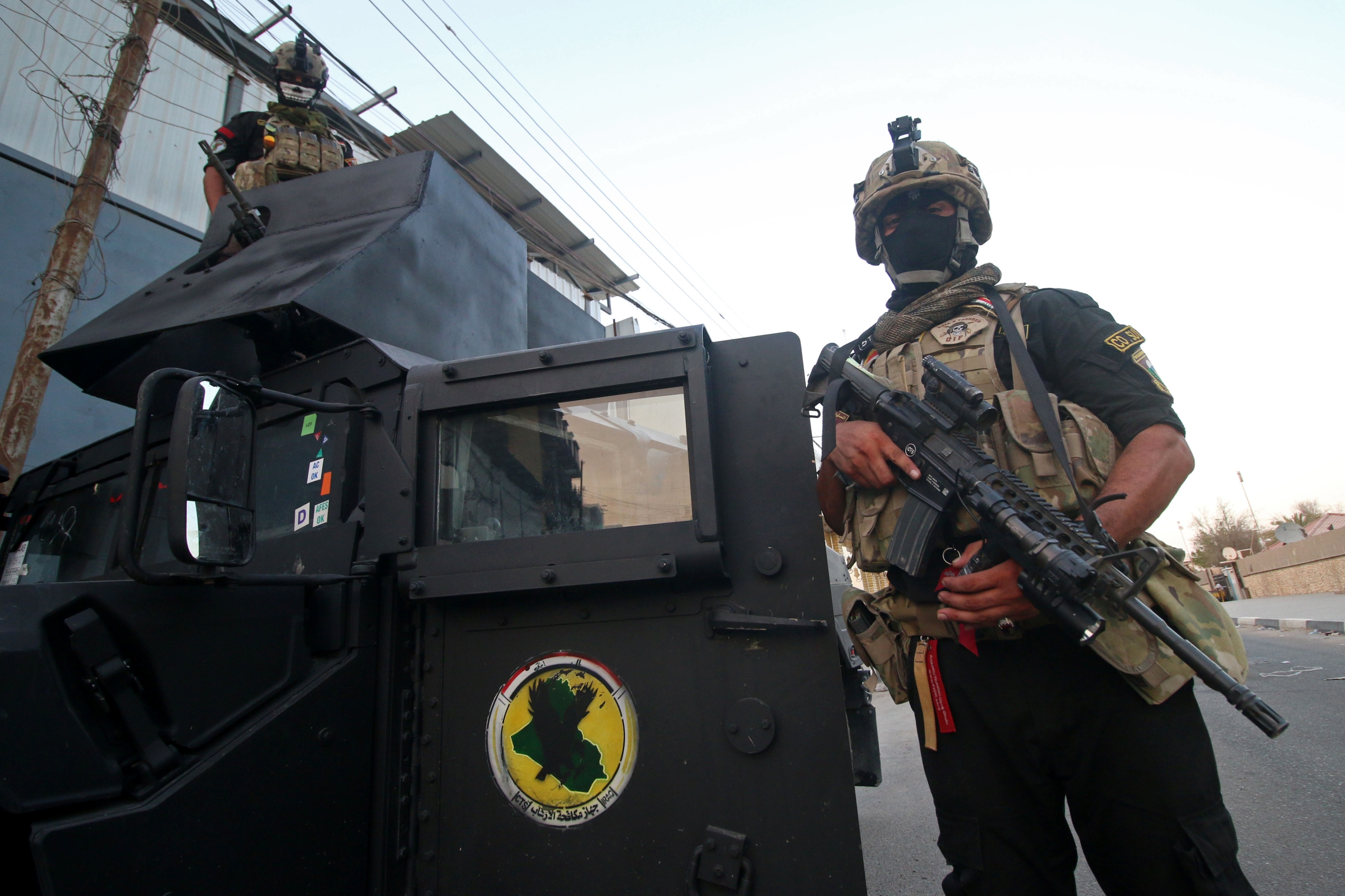
Iraq's most elite military unit has been forced to deny that it was in the process of launching a coup in the country, after a post on its social media account announced the beginning of a "military insurrection".
A spokesperson for the Counter-Terrorism Services (CTS) said the accounts had been "hacked by weak-spirited people" and that the claims "had no credibility at all".
Despite this, the tweets, originally sent out on Monday morning, were still available by the afternoon.
"The head of the Counter-Terrorism Agency, Lieutenant General Talib Shaghati, announced the start of a military insurrection and the start of the military coup against the illegitimate government in response to the demands of the Iraqi people," read one of the CTS tweets, which contained the statement in English.
New MEE newsletter: Jerusalem Dispatch
Sign up to get the latest insights and analysis on Israel-Palestine, alongside Turkey Unpacked and other MEE newsletters
The controversy comes as security forces continue to mete out violence against demonstrators, who have repeatedly called for the government to resign.
The CTS remains one of the most popular institutions in Iraq - the beginning of almost two month long protests in the country, which have seen at least 355 people killed and thousands wounded, were in part sparked by the demotion of the popular deputy chief of the CTS, Staff Lieutenant General Abdulwahab al-Saadi.
In a post in Arabic on Facebook, which has since been deleted, it was announced that Shaghati had ordered the arrest of Prime Minister Adel Abdul Mahdi for "crimes committed against the demonstrators".
Shaghati denied the coup in a statement on Facebook shortly after the original posting, saying the CTS would remain a "protector of the people, the democratic political system, the Iraqi state and its national institutions".
Analysts have mooted the possibility of a coup in Iraq since the beginning of demonstrations.
Public anger at what is seen as a corrupt political class has led some protesters to call for the installation of a more centralised presidential system and the reduction of the number of seats in the Iraqi parliament.
Parliamentarians were set to meet on Monday to discuss the passing of draft laws to reform Iraq's electoral system. The meeting had been set to take place on Saturday but was postponed due to lack of attendance.
'We've seen many suffocation cases'
Anger at the mounting death toll has seen demonstrations continue unabated across Iraq.
On Sunday and overnight, at least nine demonstrators were killed in Baghdad and southern Iraq by security forces.
At least three people were killed, according to medical sources, after a protest near the country's main Gulf port of Umm Qasr, near Basra, while three people were killed in Nassiriyah, north of Basra.
Police and medical sources also said that two protesters were killed during overnight demonstrations in the capital Baghdad.
Ahmed, a volunteer medic, told Middle East Eye that the use of tear gas and sound grenades - though nominally non-lethal - had been responsible for numerous deaths, including by becoming embedded in demonstrators' skulls.
'Both my hands are broken... but I don't want to go to hospital because I might get arrested there'
- Protester
"We've seen many suffocation cases - they're firing tear gas but the tear gas has many bad chemicals and poisons, carbonic materials that induce mucus in the lungs and thus they suffocate and can't breathe unless they vomit," said Ahmed, who would not give his real name out fear for his safety.
He pointed to a photo of one of the tear gas grenades which said, in English, not to fire them directly into crowds.
"But they do fire them directly into crowds," he said.
One demonstrator told MEE he had been thrown from Jumhuriya bridge in Baghdad by security forces after intervening to prevent the arrest of an older man.
"I went to them and said, 'Take me and release the old man.' So they threw me from the bridge onto the ground and the old man, they also threw him from the bridge," said the protester, who originally came to Baghdad from Nasiriyah.
Jumhuriya bridge, as well as the neighbouring Sinak and Ahrar bridges, have changed hands between protesters and security forces since the protests began. The bridges lead over the Tigris river towards government institutions, including the parliament.
Ahrar bridge saw violence over the weekend, with security forces firing tear gas in an attempt to push protesters back to Tahrir Square.
"Both my hands are broken," said the protester, who declined to give his name.
"But I don't want to go to hospital because I might get arrested there."
Media warnings
The Iraqi government has repeatedly closed down or restricted internet access in the country, as well as blocking access to social media sites and WhatsApp.
Although most of these services were unblocked last week, there have been further moves to restrict media outlets.
Over the weekend, the Iraqi Communications and Media Commission (CMC), a nominally independent body that monitors media outlets in Iraq, issued orders to close and warnings to a number of outlets, “for violating the regularities of media licensing rules.”
According to Arab News, among those ordered closed were Al-Arabiya, Al-Hadath and Alhurra Iraq.
Sky News Arabia, Al-Sumaria and Rudaw received warnings.
The closure orders are unlikely to take effect, unless they are approved by the prime minister or the Ministry of Interior, however.
Middle East Eye delivers independent and unrivalled coverage and analysis of the Middle East, North Africa and beyond. To learn more about republishing this content and the associated fees, please fill out this form. More about MEE can be found here.


